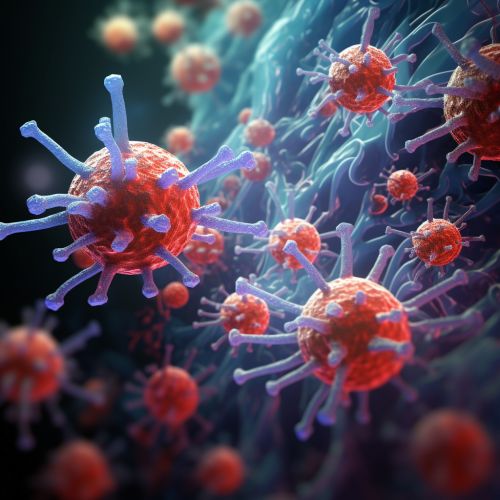Monoclonal Antibodies in Disease Therapy
Introduction
Monoclonal antibodies (mAbs) are laboratory-produced molecules that can mimic the immune system's ability to fight off harmful pathogens such as viruses. These specialized proteins are engineered to serve as substitute antibodies that can restore, enhance, or mimic the immune system's attack on disease cells. mAbs are increasingly being used in the treatment of a variety of diseases, including cancers, autoimmune disorders, and infectious diseases.


History and Development
The concept of monoclonal antibodies was first introduced in the 1970s by César Milstein and Georges Köhler, who were later awarded the Nobel Prize for their groundbreaking work. Their research paved the way for the development of mAbs, which have since revolutionized the field of immunology and significantly advanced our understanding of the immune system.
Production of Monoclonal Antibodies
The production of mAbs involves several complex steps. It begins with the injection of a specific antigen into a mouse. The mouse's immune system responds by producing B-cells, each of which produces a specific antibody that can bind to the antigen. These B-cells are then fused with myeloma cells to create hybridomas, which are capable of producing large quantities of the desired antibody. The hybridomas are then cloned and the antibodies they produce are harvested and purified.
Mechanism of Action
Monoclonal antibodies work by recognizing and binding to specific proteins on the surface of disease cells. This binding can trigger a variety of responses, depending on the specific characteristics of the mAb and the target protein. Some mAbs work by blocking the interaction between disease cells and the proteins they need to grow and divide. Others recruit the body's immune system to destroy the disease cells. Still others deliver toxic substances directly to the disease cells, killing them without harming healthy cells.
Applications in Disease Therapy
Monoclonal antibodies have a wide range of applications in disease therapy. They are used in the treatment of various types of cancer, including breast cancer, lung cancer, and lymphoma. They are also used in the treatment of autoimmune disorders such as rheumatoid arthritis and multiple sclerosis. In addition, mAbs are being explored as potential treatments for infectious diseases such as HIV and Ebola.
Advantages and Limitations
The use of mAbs in disease therapy offers several advantages. They are highly specific, which means they can target disease cells without affecting healthy cells. They are also versatile, with the ability to trigger a variety of immune responses. However, there are also limitations to the use of mAbs. They can be expensive to produce and administer, and they can cause side effects such as allergic reactions. In addition, some disease cells can develop resistance to mAbs, rendering them ineffective.
Future Directions
Research into the use of mAbs in disease therapy is ongoing, with many promising avenues being explored. These include the development of bispecific antibodies, which can bind to two different target proteins at the same time, and the use of mAbs in combination with other therapies to enhance their effectiveness. As our understanding of the immune system continues to grow, it is likely that the use of mAbs in disease therapy will continue to expand.
